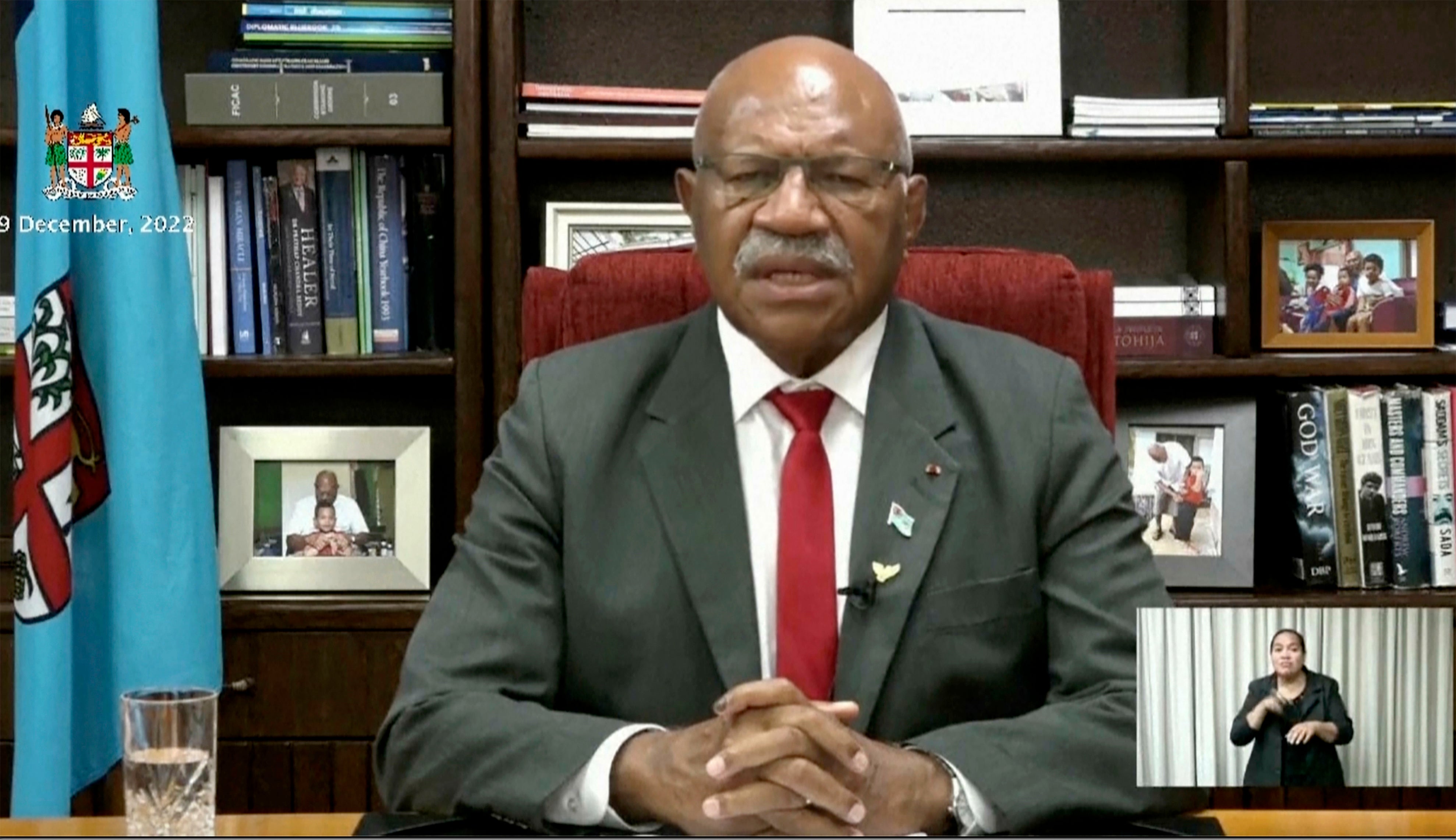Fiji reconsiders security ties with China amid Pacific tensions
Fiji’s leader indicated his nation is reconsidering its security ties with China at a time that geopolitical tensions in the Pacific are rising

Your support helps us to tell the story
From reproductive rights to climate change to Big Tech, The Independent is on the ground when the story is developing. Whether it's investigating the financials of Elon Musk's pro-Trump PAC or producing our latest documentary, 'The A Word', which shines a light on the American women fighting for reproductive rights, we know how important it is to parse out the facts from the messaging.
At such a critical moment in US history, we need reporters on the ground. Your donation allows us to keep sending journalists to speak to both sides of the story.
The Independent is trusted by Americans across the entire political spectrum. And unlike many other quality news outlets, we choose not to lock Americans out of our reporting and analysis with paywalls. We believe quality journalism should be available to everyone, paid for by those who can afford it.
Your support makes all the difference.Fiji's leader indicated Wednesday his nation is reconsidering its security ties with China at a time that geopolitical tensions in the Pacific are rising.
Prime Minister Sitiveni Rabuka said Fiji was reviewing a contentious police cooperation agreement it signed with China in 2011 that has allowed Chinese police officers to be stationed in Fiji.
At one point during a news conference in Wellington with his New Zealand counterpart Chris Hipkins, Rabuka appeared to go one step further by referring to Fiji's “discontinuation” of the agreement.
“If our systems and our values differ, what cooperation can we get from them?” Rabuka said, referring to China.
“We need to look at that again before we decide whether we go back to it, or if we continue the way that we have in the past by cooperating with those who have similar democratic values and systems."
Fiji expanded its policing agreement with China in 2013 to include some military cooperation, but Rabuka on Wednesday didn't directly address that arrangement.
China has previously said the security agreements have benefited Fiji and it hopes to continue the collaboration.
Rabuka won a tense election in December over Frank Bainimarama, who had held power in Fiji for 16 years. Rabuka has moved since then to distance himself from some of Bainimarama's policies, including moves to forge closer ties with China.
Meanwhile, Bainimarama and former Police Commissioner Sitiveni Qiliho, who oversaw the China policing agreement, now face criminal charges of abusing their power, as does former Attorney-General Aiyaz Sayed-Khaiyum, who was widely seen as Bainimarama's right-hand man.
China and the U.S. have increased their competition for influence in the Pacific in recent years.
Last month the U.S. signed a new security pact with Papua New Guinea, which is strategically located just north of Australia. The U.S. has also opened embassies in Solomon Islands and Tonga, and revived Peace Corps volunteer efforts.
Last year, Solomon Islands signed its own security pact with China, a move that raised alarm throughout the Pacific.